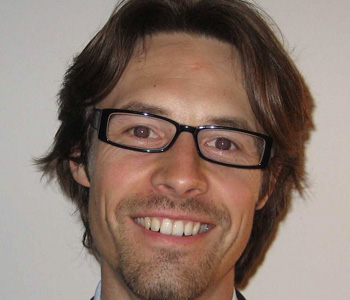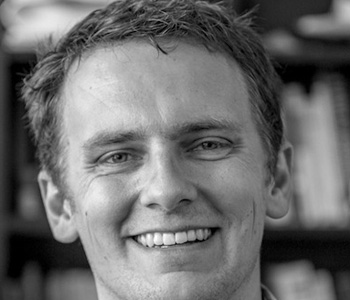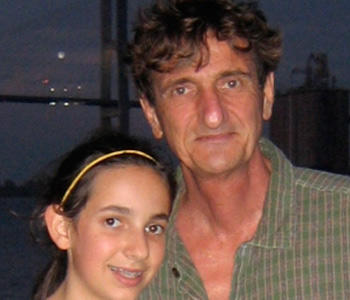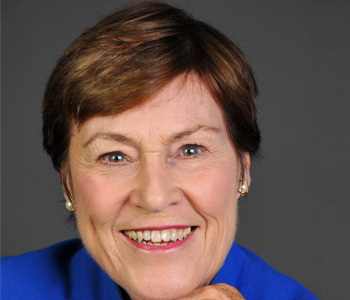Philip G. Cerny
Rethinking World Politics: A Theory of Transnational Neopluralism
Oxford University Press
350 pages, 6 1/4 x 9 1/4 inches
ISBN 978 0 19 973369 9 hb
ISBN 978 0 19 973370 5 pb
Our understanding of world politics in the “modern” world (i.e. the past couple of centuries) has been dominated by the “inside/outside distinction.”
On the one hand, “domestic” politics, the inside, involves the interaction—whether pluralistic or hegemonic—of political parties, social categories, interest groups, values such as justice or fairness, and different national models of economic growth and development.
On the other hand, “international” politics, the outside, has been about hierarchy and competition among states seen as “unit actors” pursuing “national interests” and military security in a world of inherent underlying conflict and “relative gains.” (Even proponents of “soft power” like Joseph Nye focus on the relative capacities of states to pursue their interests in a context of growing global integration.)
Today, however, debates are about globalization and “complex interdependence”—economic processes, social linkages, and power relationships that cut across borders.
Rethinking World Politics is an attempt to transcend the inside/outside distinction by applying well-known analytical approaches to domestic politics to the wider world.
Rather than seeing, for example, international markets, multinational corporations, trade interdependence, global finance, and the explosion of international non-governmental organizations as merely complicating the lives of nation-states, I argue that complex, cross-cutting, multi-level political processes are becoming transnational realities that make international politics more and more like domestic politics.
Nation-states are increasingly enmeshed in transnational webs of power that are not merely replacing states but transforming them in a multilayered world politics that has not yet been fully understood.
In approaching this question, the book applies quite traditional notions of pluralism and neopluralism to world politics. In other words, the main actors are no longer states, statesmen (and women), foreign policymakers, and security apparatuses like the armed forces, but groups.
Like pluralists such as V.O. Key, I focus on both what have been called “sectional” (or “material interest”) groups and “value” groups. The book argues that those groups that have been most successful are those that have led the way in creating, utilizing, and coordinating their activities across borders. Cross-cutting linkages, coalitions, and networks—“third-level games,” as distinct from the “two-level games” within and between states—increasingly reflect the way such groups use those ties to enlarge their power and influence. This, in turn, is leading to a process of “structuration” (or re-structuration) of world politics itself.
This process of re-structuration has another side to it as well. It is not merely about the power and influence of such groups, but also about how much more complex and often opaque these processes are.
Traditional forms of political debate increasingly cannot identify who has power and influence; traditional policymaking processes cannot effectively address the growing challenges of globalization whether in terms of economic growth and stability, the environment, more fragmented forms of violence and warfare, or social cohesion; and traditional forms of state management and bureaucracy, whether democratic or authoritarian, are inadequate in doing what people expect them to do, especially in the “global village” where communication is increasingly transnational.
Domestic politics, as well as international politics, are therefore faced with political entropy and even what has been called “neomedievalism,” i.e. competing authorities with overlapping jurisdictions.
This “new world order” is still in the making, and the key actors—political, economic and social—are still finding their feet in this unpredictable and unprecedented environment of change and transformation.
The vague and fungible concept of “neoliberalism” has been particularly important in presenting and justifying these changes—and has itself been rapidly evolving. The institutions and processes often labeled “global governance,” which remain essentially inter-governmental, are also inadequate for managing this transformation.
My book not only looks at these processes in broader theoretical and analytical terms but also applies them to particular issue-areas such as financial markets and regulation, democratization, and war and violence.
My own trajectory has taken a number of twists and turns.
In the introduction, I mention only one of the many people who have influenced my own thought—a professor who at undergraduate level introduced a small group of us to the pluralist writers of the first half of the 20th century. I was wary of pluralism at the time, as it seemed too “nicey-nicey” in assuming that, as in a marketplace, the interaction of many groups would lead to positive-sum outcomes. At the same time, I was aware that underlying processes of groups jockeying for power and influence were often (if not always) more important than formal institutional structures in determining outcomes.
I was reminded of this years later when reading the granddaddy of all pluralist tomes, Arthur F. Bentley’s The Process of Government—published in 1908, one hundred years before I completed my manuscript. Bentley wrote that when the United States Supreme Court made a particular decision, it could always find legal terms to justify that decision—whatever it was. But what ultimately determined the outcome was the fluid, “moving process” of the interaction of interest and pressure groups and the form that took at a particular time in history and politics.
That sort of pluralism came under fire at various times in the 20th century from both traditional sociological elite theorists and Marxist (and neo-Marxist) class theory. Nevertheless, like pluralism, these critical approaches stressed the underlying interaction of not merely socio-economic but also political forces, rather than the institutional “superstructure.”
At the same time, however, institutionalist and later neoinstitutionalist approaches developed that revalued the state and led into the “state theory” of the 1980s and 1990s, revaluing the role of superstructures and the “infrastructure” of states themselves, especially in the context of the “varieties of capitalism” literature.
As an observer in my early years as an academic of French politics in the context of Gaullism and the coming of the Fifth Republic, I went through a period of what might be called neo-statism in my analyses of comparative politics.
Ultimately, however, the interaction of all these approaches led me back (and forward) to a version of the “neopluralism” outlined in the domestic context by Charles Lindblom and Robert Dahl in the 1970s. In other words, while competition between groups is crucial—this is not traditional elitism or Marxist class analysis—“some groups are more equal than others” (to adapt George Orwell).
At the same time, it was the failure of Gaullist neo-statism in France under the Mitterrand presidency that first pointed me toward an interest in globalization. I therefore made the transition from a comparative European politics specialist to one with a focus on international political economy in the late 1980s and early 1990s.
My book The Changing Architecture of Politics: Structure, Agency, and the Future of the State (1990) represented an intermediate stage in that transition. This culminated in the publication in 1995 of my best known academic article, “Globalization and the Changing Logic of Collective Action,” in the journal International Organization. It also led to the development, starting with The Changing Architecture of Politics, of the concept of the “competition state,” pursued in various articles and book chapters (see the special issue of Policy Studies on the competition state that appeared in January 2010); the concept is revisited in chapter 8 of Rethinking World Politics.
What intrigued me most about globalization therefore was what it meant not just for inter-state relations, but for the underlying political processes it represented. Rethinking World Politics is indeed for me a kind of magnum opus, bringing together in a single, comprehensive and—hopefully—consistent analytical framework all of the directions my thought has taken over the decades.
I see the book as a reply to the dominance of “realism” (and, of course, “neorealism”) and “liberalism” (in the sense of “liberal internationalism” or, today, “global governance”) in international relations theory and practice—i.e. as outlining what I believe to be a distinct and hopefully new (as well as old) paradigm for understanding world politics. Indeed, I specifically decided to use the term “world” politics, as distinct from “international” relations or politics in order to stress the complex, multilayered character of the embryonic situation I was trying to identify and analyze.
Your “just browsing” reader should actually start with the blurbs on the back cover. I was blown away by the positive response I got from senior colleagues who are among those I respect most in the profession! I feel they accurately identify what I was trying to do.
Beyond that, I think I managed to summarize the argument as well as I could have done in the introduction, and then followed it up with a look at the key dynamics of the analysis in the conclusion.
The introductory chapter is entitled “Why Transnational Neopluralism?” Readers who are interested in the sort of issues I emphasize in this interview will find the questions set out, I hope, systematically.
The concluding chapter is entitled “Globalization is What Actors Make of It.” It emphasizes that the shift from a state-centric world order to a neopluralist one may take different forms, and that actors in a range of different structural positions will be able to shape different aspects of that transition—sort of the equivalent of what Bentley called the “great moving process” of pluralism (or, in this case, neopluralism).
I am skeptical about the possibilities of prediction in the study of politics, and indeed of the social sciences in general, but I believe one can sketch out a range of possible trajectories and look at the conditions under which one “pathway” might predominate rather than another. There will always be what are often called “multiple equilibria” inherent in social change (and continuity). As has often been said, the only thing we can really predict is the past. Explanation thus requires “process tracing” rather than pseudo-scientific models of the future. Therefore the closest we can get is what is sometimes called “scenario analysis.” I identify three of what I regard as key scenarios.
The first is, to pinch David Stockman’s famous term, the “rosy scenario.” In the rosy scenario, pluralism and democratization, often with a basis in a convergence across the world of legal rights, political cultures, and global governance, will lead to a better world. Positive views of the “Arab Spring” just this year—well after the book was written—tend to fall into this category, although the information technology, human rights, and new-middle-classes-led revolt is still fragile. Also the concept of the emergence of a genuinely “global civil society” rooted in the growth and increasing legitimacy of transnational non-governmental organizations (NGOs), “transnational advocacy networks,” and the like posits implicitly or explicitly that the spread of transnational “value groups” (to use Key’s original distinction) will come to dominate the globalization process and point the way to a better world. I remain highly skeptical of the rosy scenario, but it is nevertheless a key dimension of the emergence of a new world politics.
The second scenario is what for want of a better term I label “sectoral hegemony.” This view is often set out in more radical critiques of international politics and political economy. A range of authors such as Kees van der Pijl and Stephen Gill identify a “transnational capitalist class” or “transnational elite” or “new constitutionalism” wherein what I would regard as neopluralism congeals into the systemic dominance of particular economic sectors (and the linkages among them), leading to a version of neo-Marxist class domination. Such domination would be enabled by structural changes, as economic globalization gives business and finance new resources and new capacities to organize the world around their own interests.
The Financial Times writer Gillian Tett, writing about the global financial crisis, talks about the banks and other financial market actors “dancing around the regulators.” This seems timely when we look at the way the Dodd-Frank Act in the United States is working—or not working—and the fragmented way European governments are responding to current sovereign debt crises. Can states keep the global financial system stable and safe, or are we on our way to the next crisis? These and other questions about the power and influence of international finance are crucial to whether world politics is going to be characterized by increasing sectoral hegemony.
The third scenario is what has been called “neomedievalism,” referred to above. This analysis goes back to the writings of the international relations theorist Hedley Bull in the 1970s and became fashionable in the mid-1990s. It sees not a coherent line of development like the rosy or sectoral hegemony scenarios, but rather a fragmentation of world politics, with nobody really being in charge except in particular regions or economic sectors, and even then not for very long and continually challenged. In the area of security, it can be summed up in the notion of warlordism, rooted in ethnic and cross-border warfare and violence, along with the increasing role of insurgency warfare, improvised explosive devices, etc. In economics, it means a combination of oligopoly, rapid change, and destabilization. In social matters, it means that social ties across borders lead to more strife, not less. James Rosenau has referred to “fragmegration,” or the mutual interaction of global integration and socio-economic as well as political fragmentation; this notion is also partly present in the concept of “glocalization,” or the interaction of global and local processes bypassing the superstructures of states and international organizations.
Transnational neopluralism, I believe, captures the way these three possible scenarios or alternative equilibria interact in practice. Alain Minc, the French intellectual, in Le nouveau moyen age (1993), argues that the Middle Ages themselves were not a period of simple crisis, conflict, and breakdown, but one of “durable disorder.” This disorder was also creative, leading to the emergence of the very social forces that gave birth to the Renaissance and eventually to modern capitalism and even democracy.
Rethinking World Politics is therefore an attempt to show that although globalization and its consequences may be messy and disordered at some levels, there is a whole universe of actors out there who potentially can play a role in shaping that order. It’s just that we are still in the early stages of the process.
Can the sorts of groups that are developing crucial transnational linkages—both sectional and value groups, and with much in between—forge a better world? In a talk last year to graduating students at Rutgers-Newark, I told them that the future was in their hands. I hope this book can inspire as well as analyze, even if the pathways are still convoluted and not easy to discern.




We don't put paywalls. We don't distract you with ads. We don't sell your data.
Please help to keep this running!